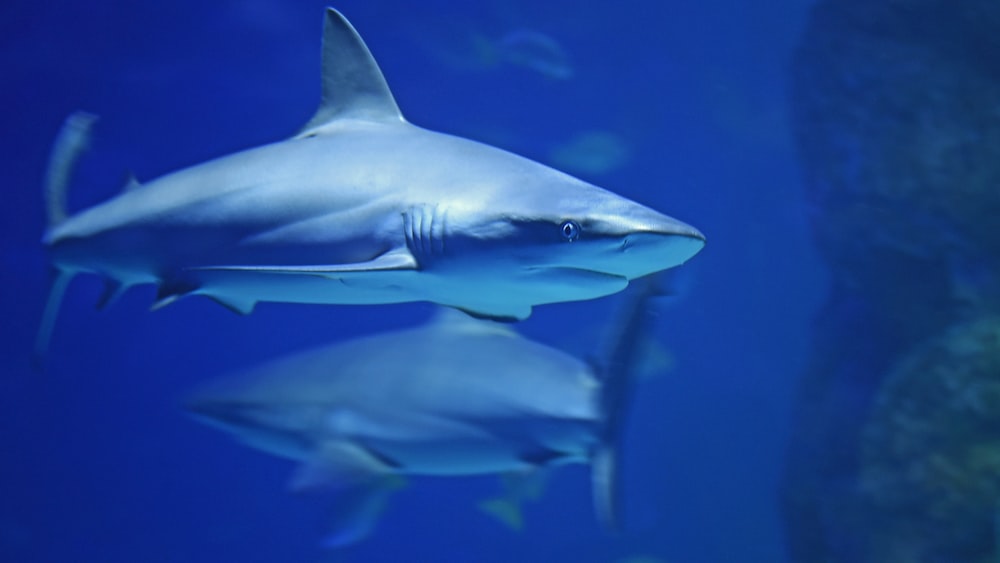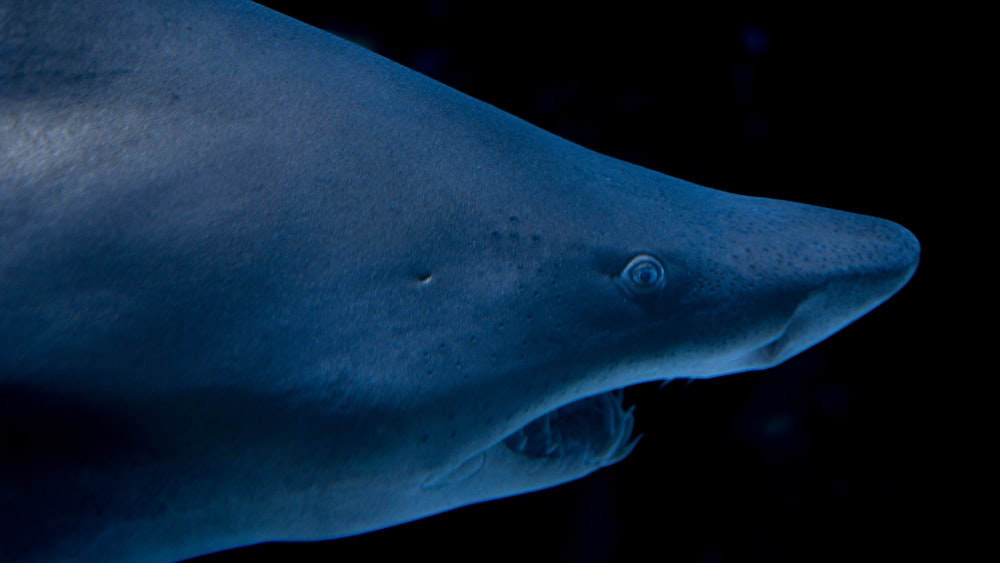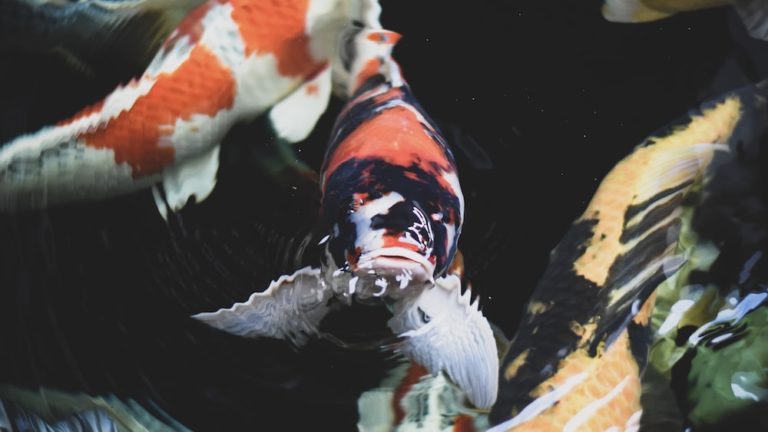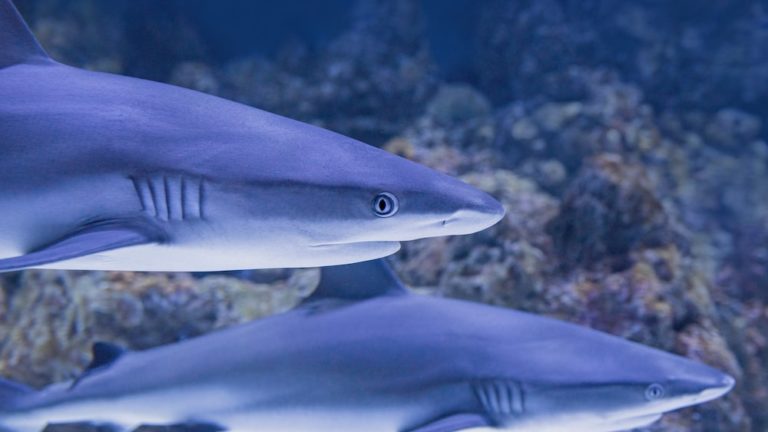Can A Shark Eat A Whale? The Ultimate Predator Showdown
Can A Shark Eat A Whale? The Ultimate Predator Showdown
Imagine plunging into the deep blue, where the true rulers of the ocean lie in wait. The ocean’s vastness harbors tales of epic showdowns, and among the most awe-inspiring of these is the face-off between the ocean’s apex predators. Can a shark eat a whale? This question lingers in the minds of many marine life enthusiasts, eco-adventurers, and conservationists alike. Dive in, as we explore the intricate dance of predator and prey beneath the waves.
Key Points:
- Sharks and whales are the ocean’s apex predators.
- Great white sharks and killer whales are frequently involved in clashes with whales.
- Size, strength, and hunting strategies play a role in the feasibility of sharks preying on whales.
- Documented instances show great white sharks feasting on dead or dying whales.
- Orcas are known for their strategic attacks on sharks and their status as apex predators.
- Shark-whale predation impacts the marine food chain and highlights the role of sharks and whales in maintaining balance.
- Human influence, including overfishing and pollution, affects shark and whale populations.
- Conservation efforts are being made to protect and preserve sharks and whales.
Sharks, with their fierce reputation, and whales, the gentle giants of the sea, seem like creatures from two different worlds. Yet, certain circumstances draw them into a deadly waltz that intrigues and horrifies the curious onlooker. Can the notorious great white shark or the cunning killer whale outmaneuver these leviathans? Buckle up your scuba gear, as we’re about to embark on a deep dive into this ultimate predator showdown.
Our journey will not only satisfy your hunger for oceanic knowledge but also address the impact of these formidable encounters on the marine ecosystem. Can a shark eat a whale? By the end of this aquatic saga, this elusive mystery will unravel with a splash of enlightenment and a wave of understanding about the balance of life beneath the surface.
The Predatory Dynamics of Sharks and Whales
The deep blue is a stage for the perpetual struggle of survival, and the players are none other than the ocean’s apex predators – sharks and whales. Both command respect in their own right, but when their paths cross, it sparks a battle that could swing in favor of either participant. This ancient tug-of-war stirs the curiosity of conservationists and thrill-seekers who ponder the formidable nature of predator versus predator.
Defining the Predators: Sharks and Whales
On one side of the ring, we have sharks, a diverse group of cartilaginous fish whose very name invokes images of razor-sharp teeth and agile hunters. Sharks cover an impressive range of species, from the nimble hammerhead to the colossal whale shark, the latter claiming the title of the largest fish in the sea. Prowling the ocean’s levels, these predators exhibit a variety of shapes and sizes, united by their predatory instincts.
On the other side, we have the whales, mammoth mammals whose breaches captivate audiences worldwide. Among them swims the blue whale, the largest creature on the planet, whose sheer size renders it almost invulnerable. Still, not all whales are created equal; while some majestically roam the vast oceans, others, like the killer whale or orca, are fearsome hunters, infamous for their strategic prowess and dominance over other marine life.
Sharks and whales both represent power and dominance in the ocean, each showcasing unique predatory instincts and remarkable physical abilities.
Historical Encounters Between Sharks and Whales
Historical encounters between sharks and whales are the stuff of maritime legend, passed down through generations of sailors and oceanographers. Whispers of these clashes often include the great white shark, a predator known to bite off more than it can chew while taking on beached whales or scavenging whale carcasses.
Juxtaposed to this is the killer whale, a creature with a more calculated approach to predation, often engaging in battles that highlight their superior intellect and social coordination. These stories have sailed through time, leaving many to question the frequency and conditions under which such powerful creatures collide.

Analyzing the Feasibility: Can Sharks Prey on Whales?
In considering the awe-inspiring question, Can a shark eat a whale? it’s pivotal to look beyond the shadow cast by these creatures’ mythic reputations and delve into the nitty-gritty of what’s truly possible under the marine layer. This intricate tapestry of possibility is woven from the threads of size, strength, and opportunity.
Size and Strength Comparison
When dissecting the likelihood of a shark dining on the ocean’s goliaths, one must first consider the sheer magnitude. The blue whale, eclipsing nearly all life on Earth in size, seems an improbable target for even the largest of sharks. Whale sharks, though intimidating in size, are gentle filter feeders, unlikely to even nibble on anything as sizable as a whale.
Yet, size isn’t the only measure at play here. The strength and ferocity of a determined great white shark should not be underestimated. These predators have been known to go after whale calves or sickly adults, demonstrating that size alone may not dictate the victor in these underwater clashes.
Size alone may not dictate the victor in underwater clashes between sharks and the ocean’s goliaths.
Hunting Strategies of Sharks
Sharks have evolved a fascinating array of hunting strategies that showcase their adaptability and raw power. Strategy one involves stealth and surprise; lurking beneath the waves, sharks use the ocean’s cloak to launch sudden strikes on their prey.
Strategy two relies on the brute strength and lethal bites of apex predators like the great white shark. An attack can be a singular, mighty effort or a series of swift, calculated moves. In the third approach, pack hunting, smaller sharks may swarm and overwhelm a whale, though such sightings are as rare as mermaid’s tears in the grand tapestry of the marine world.
Documented Cases of Shark and Whale Interactions
Documented instances where sharks and whales have crossed paths are a mosaic of oceanic drama. These real-life encounters bring to light the remarkable occurrences when the hunter becomes the hunted, and giants of the sea must yield to the relentless jaws of their nemeses.

Great White Sharks and Their Attacks on Whales
Renowned for their unparalleled predatory skills, great white sharks have been observed in some of the most gripping marine encounters. Accounts of these sharks feasting on dead or dying whales are not uncommon; it’s a clear demonstration that opportunism is part of the natural order.
However, to witness a great white launching an assault on a healthy adult whale is a rarity indeed. Such an event would require a convergence of extraordinary conditions, showing that in the ocean, sometimes the tables can turn in the blink of an eye.
The Role of Orcas in Predatory Behavior
The orcas, or killer whales, are a different kettle of fish altogether. These masterminds of marine warfare coordinate complex, strategic attacks that can target even the most formidable of foes. Orcas are known to prey on shark species, ensuring the title of ‘killer’ in their name is well-deserved.
With sheer intelligence, collaborative hunting, and raw power at their flippers, orcas have been observed taking down great whites. This practice is not only testament to their status as apex predators, but it provides a stark reminder that in the oceanic hierarchy, no one is truly invincible.
Orcas, or killer whales, demonstrate remarkable intelligence and collaborative hunting strategies, allowing them to take down even the most formidable predators, serving as a reminder of the oceanic hierarchy where no one is truly invincible.
The Ecosystem Impact of Shark-Whale Predation
When we delve into the maritime saga of shark-whale predation, we’re not just regaling in epic ocean tales; the plot thickens as this interaction plays a pivotal role within the marine ecosystem.
The Balance of the Marine Food Chain
Imagine for a moment the vast tapestry of the ocean’s food web, where every creature, from the minuscule plankton to the mighty whale, holds a strand of importance. Sharks and whales are key players in maintaining this balance. Their predatory nature ensures that population numbers of various marine species are kept in check, fostering a diverse and healthy ocean.
Sharks, often perceived as the villains of the deep, are actually environmental heroes. By preying on the sick, the weak, or the overly abundant, they act as the ocean’s vigilant clean-up crew, preventing the spread of disease and allowing stronger genes to prosper. Whales, on the other hand, by their sheer size and migration patterns, facilitate the distribution of nutrients across the oceans, igniting the bloom of life where they go.
Predation between the two, although less common, sends ripples through the food chain. A shark preying on a humpback whale calf, for instance, may seem brutal, but it can ultimately reinforce the resilience of the whale population, ensuring only the strongest and most adept survive.
Human Influence on Shark and Whale Populations
As ocean stewards, humans have a complicated relationship with the deep blue. Our presence has swayed the balance of shark and whale populations through activities such as fishing, pollution, and climate change. Such disturbances can have a domino effect, trickling down to the most microscopic members of the marine food chain.
Overfishing, a particularly insidious issue, has led to a dwindling of certain shark species, upsetting the equilibrium they help maintain. Whales, often caught in the crossfires of human encroachment, face their own hurdles, from ship strikes to noise pollution disrupting their communication and navigation abilities.
However, the tide is turning. Conservation efforts and protective legislations are gradually bringing a wave of change. By cultivating an understanding of the symbiotic relationships within the marine realm, humans can actively contribute to a future where both sharks and whales thrive.
Conservation efforts and protective legislations are gradually bringing a wave of change, and by cultivating an understanding of the symbiotic relationships within the marine realm, humans can actively contribute to a future where both sharks and whales thrive.
FAQs
1. Have sharks ever been observed eating whales?
Sharks eating whales is not entirely unheard of, especially when sharks are presented with the opportunity to scavenge on whale carcasses. Instances where sharks, particularly great white sharks, have been seen feasting on the remains of dead whales attest to this predatory behavior.
2. What species of sharks are known to attack whales?
There are certain shark species that have been known to attack whales, particularly the great white shark and the tiger shark. These apex predators occasionally target weak, sick, or young whales, emphasizing their role as natural enforcers in the ocean’s hierarchy.
3. Can a great white shark take down a large whale?
Taking down a large whale is a challenge for a great white shark due to the sheer size difference. Typically, great white sharks may predate on smaller, young whales or go after weak or deceased individuals rather than hunting healthy, adult whales.
4. How do killer whales hunt and overpower sharks?
Killer whales, or orcas, employ coordinated hunting tactics and sheer strength to overpower sharks. This includes ambushing and creating waves to unbalance their prey – tactics that highlight their prowess as apex predators in the marine environment.
Conclusion
In the vast blue expanse, the question, “Can a shark eat a whale?” unravels a cascade of ecological ruminations far greater than the sum of its parts.
To observe a shark navigating the waterways of our planet’s last great wilderness with the finesse of a maestro is to understand the delicate symphony of life that thrives beneath the waves. The shark, our formidable, finned friend, and the whale, the gentle giant of the deep, are not mere subjects of a predatory showdown, but vital conductors in the orchestra of the ocean.
Let us not forget that, while sharks may occasionally dine on the bounty of a whale, it’s in the extraordinary tales of their interaction that we find our greatest chance to learn and protect these marine wonders. Can A Shark Eat A Whale? The answer is nuanced, but the continued existence of these remarkable creatures depends on our collective actions, and our willingness to dive deep into the heart of conservation.
And so, my fellow marine life aficionados and defenders of the deep, I bid you a warm current of gratitude for your kindred spirit in this aquatic quest. Until we cast our nets wide for the next tide of discovery, swim softly and remember – the ocean’s mysteries await the patient and the passionate. With briny regards, Jasper Flynn.






